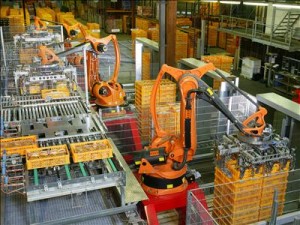 As energy costs continue to escalate, more than half of US companies are looking for new ways to invest in energy saving technologies, according to a recent survey commissioned by Schneider Electric.
As energy costs continue to escalate, more than half of US companies are looking for new ways to invest in energy saving technologies, according to a recent survey commissioned by Schneider Electric.
The survey, which was conducted by the firm Redshift Research during Schneider Electric’s 2013 Xperience Efficiency events held in Washington, D.C., and Dallas, Texas, also found that 63% of public and private sector energy leaders already have invested in efficient energy programs during the previous 12 months and plan to double down on their investment during the coming year.
Energy Efficiency Investments Up 12%
The survey included 301 people whose companies earned at least $50 million annually in revenue and who had a decision-making role in facility, operations, technology, supply chain, or energy efficiency management. Energy efficiency investments increased 12% while projected investments increased 13%.
That sort of concern about counteracting rising energy costs is not surprising, said Laurent Vernerey, Schneider Electric’s president and CEO.
“Increased investment suggests business leaders are seeing a return,” Vernerey said. “In fact, more than half (51%) of respondents said they realize at least a 25% return on investment on efficiency initiatives. This type of return will drive more investment in efficiency applied across the enterprise — beyond energy consumption — as organizations find that they must become operationally efficient to remain competitive and profitable in today’s environment.”
The survey found that 60% of respondents said they have at least one person in their organization who is the designated point person for energy management.
Where the Money Is Being Spent
“With these figures in mind, the move toward more intelligent energy management and increased economic sustainability seems promising, as 24% of respondents expect building automation to gain traction in the next five years, followed by efficient lighting (21%), data center efficiency (16%), renewables (9%) and smart meters (9%),” the survey results summary states. “These types of initiative allow organizations to reduce their energy costs, which 64% of respondents reported is the leading driver of energy management decision in their organizations.”
Schneider Electric warned, however, that about 33% of US private and public enterprises continue to do nothing to conserve energy. That could explain why the US finished ninth globally in a recent energy efficiency ranking among the world’s 12 largest economies.
“Global energy demand is expected to double by 2050, but by implementing energy management approaches like building automation, efficient lighting and data center efficiency today, we can curb the troubling trend of skyrocketing energy usage,” states the summary. “Right now, businesses, governments and homeowners alike can take practical, simple and effective actions to improve efficiency on a personal, local and global level.”
Energy Efficiency Comes at a Cost
Respondents also noted that increased efficiency also comes with its own set of challenges, including more complex technology management (55%), security (54%), and conflict between Information Technology and operations staff (47%).
Schneider Electric’s survey also identified modernization as something that will be crucial to industry in the coming years. After IT and operational technology convergence, 51%of respondents said infrastructure modernization was a priority, while 48% said public infrastructure upgrades would positively impact their businesses. The most important among these were electrical systems (56%), traffic and transportation systems (53%) and telecommunications (48%).
